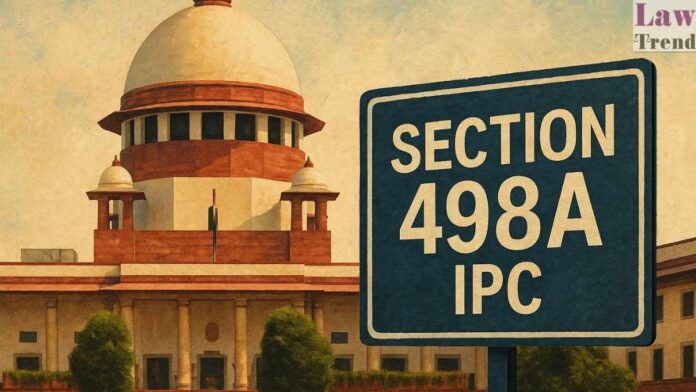The Supreme Court of India, in a significant ruling, has quashed criminal proceedings against a man, observing that vague and omnibus allegations of dowry harassment are insufficient to sustain a case under Section 498A of the Indian Penal Code. A bench comprising Justice B.V. Nagarathna and Justice R. Mahadevan set aside an order by the
To Read More Please Subscribe to VIP Membership for Unlimited Access to All the Articles, Download Available Copies of Judgments/Order, Acess to Central/State Bare Acts, Advertisement Free Content, Access to More than 4000 Legal Drafts( Readymade Editable Formats of Suits, Petitions, Writs, Legal Notices, Divorce Petitions, 138 Notices, Bail Applications etc.) in Hindi and English.




